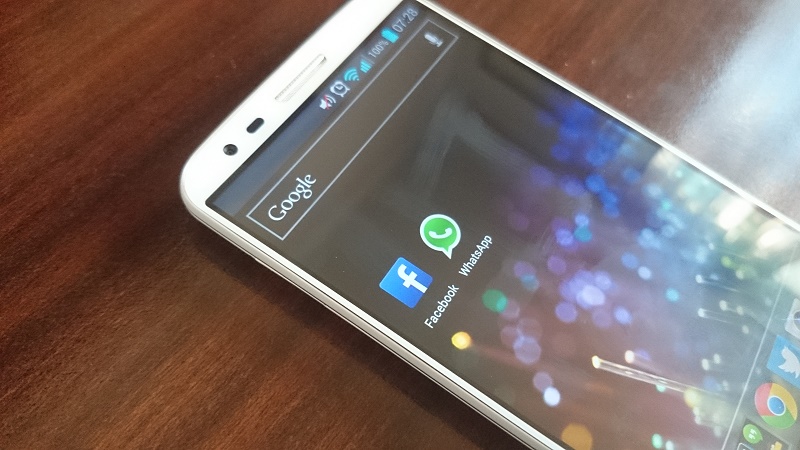South Africa’s Parliament is today hearing the Portfolio Committee on Telecommunications and Postal Services’ recommendations on the regulation of Over the Top (OTT) services.
MTN and Vodacom have in the past called for services like WhatsApp to be regulated, as the services take away from its revenue while not paying tax in the country or contributing towards the country.
First to make representations to the Portfolio Committee was Professor Alison Gillwald, executive director of Research ICT Africa.
According to her, the “issues at stake [are] around investment” and questioned how the regulation will be enforced if it ever becomes a reality. “We need complex adaptive regulation. It’s a paradox. It could down innovation.”
To further drive the point home that the issue is around lost revenue for the mobile networks, Gillwald said that “Vodacom and Cell C initially embraced the shift to data” but across the world the average revenue per user (ARPU) has fallen as people make less use of SMS and text.
“The point is the user is paying for the data, the networks are getting their cut,” she said.
During Gillward’s presentation she listed the growing number of OTT services, which not only includes WhatsApp, but also expands to things like Netflix, YouTube, Skype, Dropbox and even iMessage.
“Are mobile operators negatively affected by OTTs? Is anybody about to exit the market?” she asked. To that, the answer is obviously ‘no’, and even by Gillwald’s admission South Africa is somewhere in the middle “in terms of international data prices”.
After Gillwald’s presentation, a representative of the for the Department of Telecommunications and Postal Services (DTPS) took to the floor, saying that a white paper on OTT is scheduled for March this year.
The main gripe over OTT services for the DTPS is that the companies that provide these services don’t invest in the country’s infrastructure.
“The key concern is that OTT players make no contribution to the network infrastructure,” however it noted that the government looking to an “open internet” approach, and studied net neutrality in other countries.
Giving examples, the DTPS noted that Chile has a net neutrality policy in place, India took the decision in 2014 not to regulate OTT services, and that mobile networks in the US realised that fighting OTT services would be futile.
Wrapping up its presentation, the DTPS noted that acknowledged that it wasn’t a question of competition between the network, but that “regulatory issues must answer who pays for what.”
Pakamile Pongwana, the CEO of ICASA, said that South Africa should rather take a “wait and see” approach before starting with regulations.
As part of ICASA’s presentation, it made a number of recommendations, which included the consideration of net neutrality and its impact on competition and innovation; and that ICASA should undertake an inquiry or do research into priority markets (including possible OTT service markets) in the 2016/17 and 2017/18 financial years.
It also suggested that the DTPS should recognise the potential impact OTTs service can have, and that OTT services need to be continually monitored so that the DTPS can intervene if necessary.
But, he added, OTTs are “not easy to intercept or monitor” and make “no contribution to network investment” in the country.
In documentation filed, ICASA has also set out the differences between licenced providers and OTT services. Naturally, everything that licenced providers are subjected to does not apply to OTT services, like licensing, content regulation and taxation.
South African Communications Forum, on the other hand, said that policy and regulations haven’t been kept up to date in the country, resulting in a disruptive force when new players, like OTT services, enter the market.
On the other end of the fight is mobile network Vodacom, which said that it doesn’t support the blocking of OTT services, but that every service should be treated the same. It also explained that by the end of 2015, around 20 countries were blocking OTT services or were imposing tougher licence regulations.
Rival network MTN has taken a more aggressive approach to the OTT battle, stating that many OTT services gather personal data on South Africans, and then profit from that without paying tax in the country. It also added that OTT players offer end-to-end encryption, which contravenes South Africa’s operator licence requirements. However is has conceded that services like WhatsApp do encourage more data usage, but that the lack of frequency (spectrum) is a bottleneck in the country.
A number of Twitter users have also taken to the micro-blogging site to voice their opinion on the matter:
#OTT regulation is like a shopping mall charging people a fee because they are coming to buy something at one of the stores.
— Mac (@Chaitmac) January 26, 2016
they offer end to end encryption.. that’s one of your qualms?? piss off #OTT
— I Am Innocent (@miphale) January 26, 2016
I dont want free sms’s, i dont even want free minutes, i will gladly use more data and thats where u @Vodacom make money #ott
— 21techSA (@21TechSA) January 26, 2016
Operators need to realise that staying in the same and stagnating with regards to services will only lead to further losses… #ott
— 21techSA (@21TechSA) January 26, 2016
There is no doubt that this discussion will continue on for some time to come, as Cell C seems to be the only operator that actually supports the idea of OTT services. At the meeting, it said that it doesn’t distinguish between different OTT services, and recently announced that WhatsApp calling is free on its network.
That has to make one wonder: if Cell C has no problem with it, why do the others?

